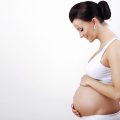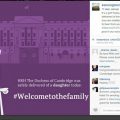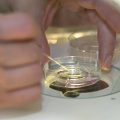Tess Morten is an ordinary 47-year-old British,Married, no children. They with the spouse, 52-year-old Neil Mortenom, wanted children very much. Countless tests, hormonal therapy, three IVF attempts, for seven years 20 thousand pounds spent on treatment. All to no avail. More precisely, one result was, but not the one on which Tess and Neal hoped - early menopause. Climax came when a woman was barely 40 years old. Now, instead of drugs designed to help get pregnant, Tess drank medications that ease tides. The medicine seemed to help. But in the last three or four months everything went wrong. Tess felt tired, broken, stomach ached, all the time it seemed that he was due to something blown. Doctors suspected ovarian cancer. We sent a frightened woman to an ultrasound and gently hinted that we should prepare for the worst. "The doctor who did the ultrasound looked at the monitor, leading the scanner down my stomach. And suddenly she said: "Your ovaries are fine. But just look at this, "- and turned the monitor toward me," Tess recalls. The woman looked at the monitor and saw ... the child. "Is this mine?" - Tessa babbled. To believe her eyes she could not - because she was almost 50, behind the menopause and fruitless attempts to become pregnant. Tess cried. In the put period, Tess's daughter and Nila Molly appeared - 3750 grams, a healthy wonderful baby.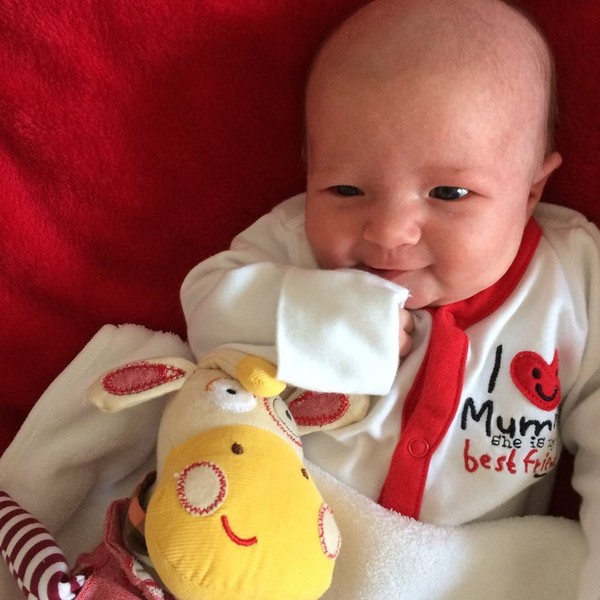
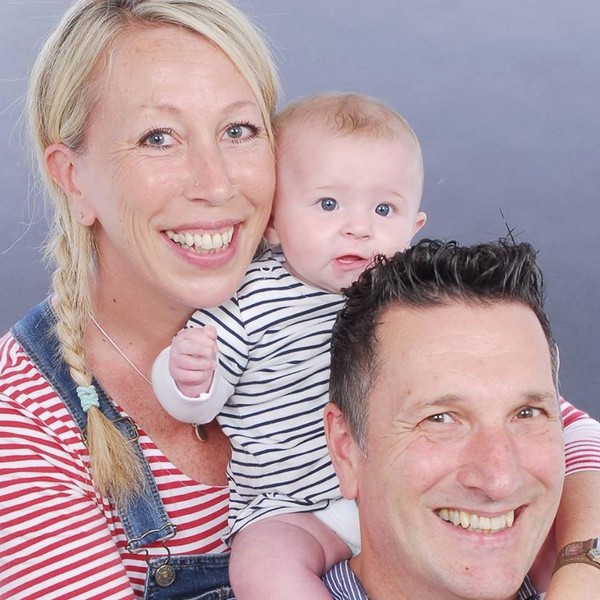 1/2Photo: @tess.mortenPhoto: @tess.mortenExperts have suggested that perhaps Tess's ovulations returned because she was taking drugs to ease menopause. But seven years after menopause? Unbelievable. "The chances of getting pregnant after menopause are microscopic, even with hormone replacement therapy," said Dr. Gita Nargun, head of the reproductive medicine center at St. George's Hospital in London. Incidentally, Tess is not the oldest mother to give birth after menopause. In 1997, 59-year-old Dawn Brooke became a sensation - she was also on hormone replacement therapy when she became pregnant and gave birth to an absolutely healthy baby boy.
1/2Photo: @tess.mortenPhoto: @tess.mortenExperts have suggested that perhaps Tess's ovulations returned because she was taking drugs to ease menopause. But seven years after menopause? Unbelievable. "The chances of getting pregnant after menopause are microscopic, even with hormone replacement therapy," said Dr. Gita Nargun, head of the reproductive medicine center at St. George's Hospital in London. Incidentally, Tess is not the oldest mother to give birth after menopause. In 1997, 59-year-old Dawn Brooke became a sensation - she was also on hormone replacement therapy when she became pregnant and gave birth to an absolutely healthy baby boy.

Making Money with Desserts: Success Stories
Evgeniya Polischuk (Fedutinova) instagram:@evgeniyafedutinovavk.com/janeshomebaking– It all started with baking for family and friends. Gradually, I started posting photos of my baked goods on Instagram – and orders started coming in. I made my first custom-made cake on October 13, 2014, and a little earlier I started making macaroons and cupcakes. You could say that the business “found me”, I am very […]

Soups are cold recipes with photos
Cold cucumber soup with yogurt and lemonsorbet from the chef of the restaurant La Taverna Alexander Zhurkin Photo: Getty Images Ingredients: Plain yoghurt – 125 g Cucumber – 150 g Lemon/lime sorbet – 50 g Cocktail shrimp – 24 g Fresh ginger juice – 1 g Lime juice – 5 g Fresh orange juice – 5 g Parsley – 1 g Pink pepper – 1 g Watercress – […]

barbeque kebab
Pork tenderloin in glaze Photo:Dmitry Bayrak/dbstudioPreparation time: 20 minutes + marinating time.Calories: 454 kcal per serving.For 4 servings: 4 pork tenderloins (approximately 300 g each), 1 onion, 2 cloves of garlic, 1 tsp. lemon zest, 1 tsp. lemon juice, a pinch of ground cumin, coriander and turmeric, 1 tbsp. vegetable […]

Pierre Duacan: dietary recipes: Ducane diet
Beetroot soup Photo:Season’S, Luxury Hotels RepresentationYou will need:· Boiled beetroot – 60 g· Fresh cucumbers – 20 g· Red radish – 20 g· Green onions – 10 g· Egg – 1 pc.· Drinking mineral water – 200 g· Salt – 1 gPreparation:· Boil the egg and beetroot.· Grate the cucumbers, radish and part of the beetroot. Put everything […]

